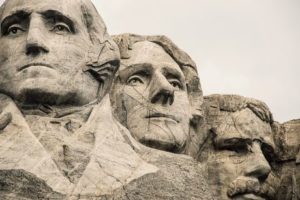Pandora Papers Show the Value of Financial Transparency, the Critical Role of Whistleblowers – and the Need for Additional Regulation

This week, the International Consortium of Investigative Journalists and its partners began publicly reporting on the “Pandora Papers,” a trove of millions of leaked documents from firms around the world that help customers set up “offshore” accounts and shell companies designed to conceal financial truths. The leaked documents, and the extensive reporting on the documents, sheds light on the murky world of offshore banking and the ways in which the global elite conceal their finances.
The 14 offshore services providers whose documents are in the Pandora Papers help clients set up entities whose real owners remain hidden, often behind multiple layers of anonymous shell companies. Or, they help clients create trusts that allow their beneficiaries to claim that they do not control the trust’s assets, while, in practice, they are able to exercise control.
The offshore banking and the complicated trust structures described in the Pandora Papers may be, by themselves, legal. If you want to set up an anonymous shell company or move your money to a jurisdiction with financial secrecy laws (including, notably, U.S. states like South Dakota and Nevada), you are allowed to do so. But, these offshore accounts, anonymous shell companies, and trusts can provide a means to evade taxes, launder ill-gotten funds, and conceal assets from law enforcement, creditors, and others.
While most of the individuals identified in the Pandora Papers are not Americans, there are notable examples of Americans using offshore accounts, shell companies, and trusts, to shield their assets from authorities and creditors. Among the individuals whose records appear in the Pandora Papers is Robert F. Smith, who last year entered into a non-prosecution agreement and agreed to pay nearly $140 million to resolve charges that he unlawfully used offshore entities and trust accounts to conceal income. Smith’s agreement also required his cooperation in ongoing investigations, presumably including the charges pending against Smith associate Robert Brockman, whom the government alleges hid $2 billion in untaxed capital gains income in a web of offshore entities in Bermuda and Nevis and secret bank accounts in Bermuda and Switzerland.
The financial systems described in the Pandora Papers therefore clearly have an impact on U.S. citizens and law enforcement. These structures facilitate tax fraud, but the issue is much larger than U.S. tax evasion. The opaque financial structures outlined in the Pandora Papers permit money-laundering and hamper government efforts to recover the proceeds of unlawful activity including violations of securities and commodities laws and the Foreign Corrupt Practices Act. In these cases, the wrongdoer can be from any country.
Improving Enforcement in the Face of Financial Secrecy
 The Pandora Papers, like the disclosures in the Panama Papers, Paradise Papers, FinCEN Files, and others before it, demonstrate the critical role played by insiders who bring these financial arrangements to light. Information from whistleblowers, and the careful reporting on that information, provides critical assistance to governments and others in pursuing hidden funds.
The Pandora Papers, like the disclosures in the Panama Papers, Paradise Papers, FinCEN Files, and others before it, demonstrate the critical role played by insiders who bring these financial arrangements to light. Information from whistleblowers, and the careful reporting on that information, provides critical assistance to governments and others in pursuing hidden funds.
The U.S. should also consider legislative and policy changes to advance financial transparency. The issues raised by the Pandora Papers are not resolved by a conclusion that offshore accounts and shell companies are not themselves illegal. It is also legal for a U.S. taxpayer to have a Swiss bank account, but when faced with information that Americans were using Swiss bank accounts to avoid U.S. taxes, the federal government responded. The Foreign Account Tax Compliance Act (FATCA) was passed in 2010. FATCA and related intergovernmental agreements require foreign institutions to provide U.S. authorities with financial information about American taxpayers. In 2013, DOJ initiated the Swiss Bank Program, encouraging Swiss banks to cooperate in U.S. tax enforcement, and that program and related enforcement efforts continue to secure recoveries.
A legislative and enforcement response is particularly important give the critical role the U.S plays in the global financial markets. U.S. laws and law enforcement have can claim significant victories in international financial transparency, sanctions enforcement, anti-money-laundering, and anti-corruption efforts.
Now, however, the Tax Justice Network ranks the U.S. behind only the Cayman Islands on its Financial Secrecy Index. The Pandora Papers shine a light on the ways in which U.S. privacy laws, including laws at the state level, make it impossible to identify those involved in tax avoidance and other unlawful schemes. Jurisdictions within the U.S. have laws allowing individuals from around the world to conceal assets.
U.S. companies, financial institutions, lawyers, and advisors who create these offshore accounts, trusts, and shell companies, do have due diligence and reporting obligations. However, those seeking to conceal tax evasion, money laundering, and fraudulent transfers are adept at finding holes in those obligations, and financial secrecy laws prevent adequate oversight.
As part of the Anti-Money Laundering Act of 2020, Congress enacted the Corporate Transparency Act, which requires certain entities to provide “beneficial owner” information to FinCEN for the creation of a database of beneficial ownership; regulations are currently being drafted. While the CTA is a step in the right direction, whether the law or its implementing regulations would be adequate to require disclosure of the activities outlined in the Pandora Papers is far from clear.
The ICIJ and other organizations are committed to keeping the information leaked in the Pandora Papers and prior disclosures available to investigators and the public. Until financial transparency laws are adequate, many will have to rely on these sources, and the information provided to them by whistleblowers.
Read More:
- Financial & Investment Fraud
- Tax Fraud
- The Foreign Corrupt Practices Act
- Money Laundering and Financial Institution Fraud
- Whistleblower FAQs
- Contact us for a confidential consultation
Tagged in: Abusive Tax Shelters, Financial and Investment Fraud, Financial Institution Fraud, Importance of Whistleblowers, Money Laundering, Tax Fraud,